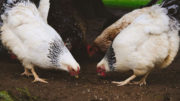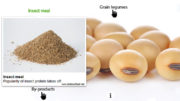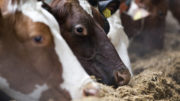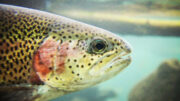As concerns about the environmental impact of animal agriculture grow, there is a growing interest in using alternative ingredients in animal feed. These alternative ingredients can include plant-based proteins, insects, algae, and even by-products from the food industry.
In the videos below experts who are working with the company IFF and Danisco Animal Nutrition & health will explore the topics of alternative ingredients in animal feed and how they can help address the challenges of land use, natural change, and high CO2 emissions. They will also discuss the potential benefits and drawbacks of using alternative ingredients, as well as strategies for formulating diets that maintain performance while reducing reliance on inorganic phosphates. Join them as they dive into the world of animal nutrition and explore innovative solutions for sustainable agriculture.
Starting off with Leon Marchal who works with Danisco Animal Nutrition & Health as a Global Innovation Director. He explains more about using the right additive strategy to help push nutritional and sustainability boundaries with alternative ingredients.
Bart Hillen works with Danisco Animal Nutrition & Health as a technical director for EMEA. In this next video he explains more about understanding the risks and challenges of going inorganic phosphate-free.
In the last video, we have Julien Kanarek who is working with Danisco Animal Nutrition & Health. He discusses new strategies to manage formulation costs without sacrificing animal health and performance.
Despite these challenges, the use of alternative ingredients in animal feed is likely to continue to grow as concerns about sustainability and cost-effectiveness increase. With careful formulation and the use of appropriate additives, it is possible to achieve good animal performance while using alternative ingredients, according to IFF.




